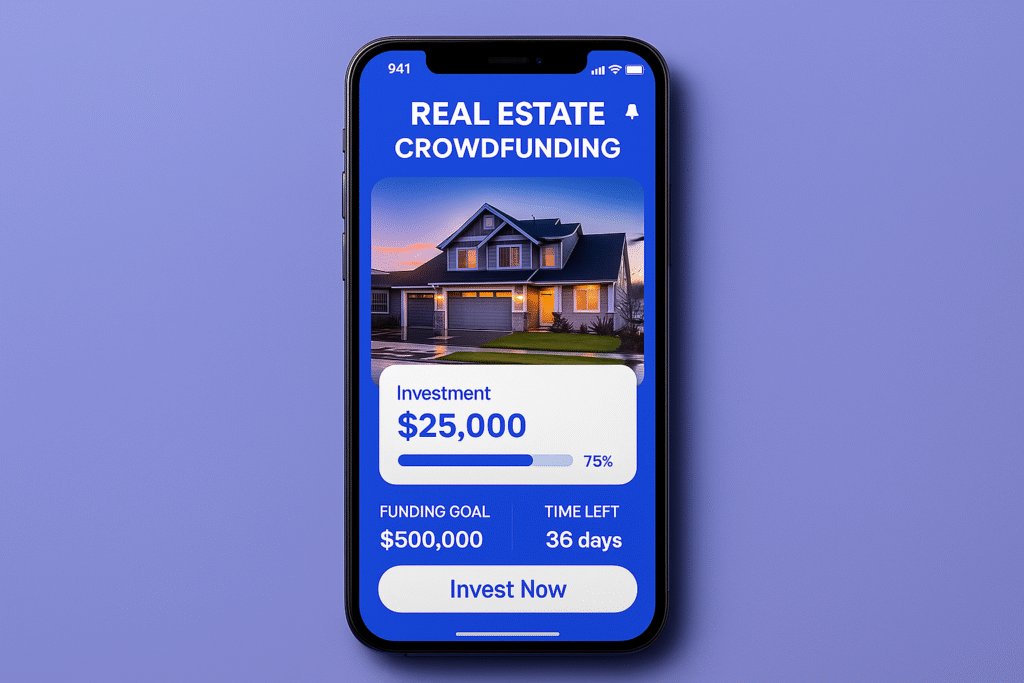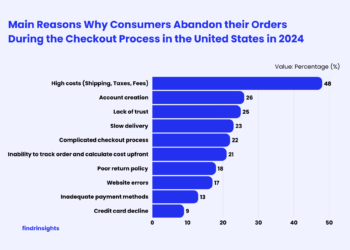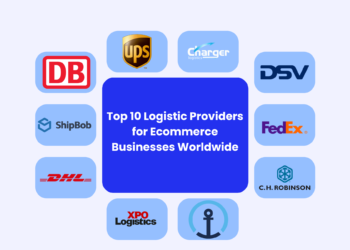
Real estate crowdfunding is changing the way people invest in property. In the past, you needed a lot of money, bank approval, and had to deal with the hassles of being a landlord. Now, you can start investing with just $10.
You no longer have to buy a whole building or manage properties yourself. Instead, you can invest in part of a luxury apartment in New York, a vacation rental in Spain, or a commercial project in Lagos, all from your phone, and there’s no need to worry about finding contractors or collecting late rent.
Real estate crowdfunding platforms have made investing more accessible for everyone. They allow you to diversify your investments across various properties and locations. However, it’s essential to remember that there are risks, such as being unable to sell quickly, market downturns, or issues with the platform itself.
Not all platforms are the same. We’ve put together a list of the best real estate crowdfunding options with low minimum investments, fair fees, and clear information so that you can start right away.
We’ve also organized them by region and country. This way, you can save time and easily find the platforms that match your goals and investment style.
What is Real Estate Crowdfunding?
Real estate crowdfunding is a type of investment that involves pooling money from multiple investors to finance a real estate project. Instead of buying an entire building, you invest a smaller amount and own a share of the property.
That could be an apartment complex, single-family homes, a commercial property, a shopping mall, or even land development. In return, you earn a share of the returns, which may include rental income, loan interest payments, or profits from the sale of the property.
It’s easier to diversify with real estate crowdfunding than by owning property on your own. For example, instead of investing $250,000 in a single property, you can spread $5,000 across five different projects. This means you can put a smaller amount of money into several places and various types of real estate, reducing the risk associated with concentrating all your funds in one asset.
Crowdfunding enables you to invest in various types of projects, including residential, commercial, and even international ones, in smaller amounts. This isn’t something you can usually do if you own property by yourself.
You can look through deals, check out the details, and decide exactly where to invest your money on crowdfunding platforms. Some of these platforms are open to everyone, so you don’t need a high income or net worth to get started.
There are some risks, though. How much you earn depends on how the property performs, and you may not be able to access your money early.
Even so, real estate crowdfunding makes it much easier for people everywhere to start investing, especially compared to traditional real estate.
Pros and Cons Of Real Estate Crowdfunding Platforms
Pros
- Low entry point: You can start with as little as $10–$500 without having to invest hundreds of thousands of dollars or get a mortgage to own a real estate property.
- Diversification: Real estate crowdfunding platforms allow you to spread your money across residential, commercial, and even international projects instead of putting all your investment into one property in different locations, which can be more expensive.
- Passive income: With a real estate crowdfunding platform, you don’t have to worry about late-night tenant calls or maintenance issues. The platform and developer handle operations while you collect consistent returns.
Cons
- Liquidity risk: Your money can be locked up for 3–7 years. Unlike stocks, where you can sell your shares quickly, real estate crowdfunding platforms can lock up your money for 3-7 years. So, it’s essential to find real estate crowdfunding platforms with time frame factors that suit your investment goals.
- Platform risk: Real estate crowdfunding is still relatively new, and many platforms lack decades of performance data to demonstrate stability. Since some have only been around for a few years, it’s harder to judge their track record.
Real Estate Crowdfunding vs REITs
If you look at real estate crowdfunding and REITs side by side, the main differences are in how easy it is to access your money, how you can invest, and what you might earn. REITs are traded on the stock market, so you can buy and sell shares in companies that own property whenever you want.
Real estate crowdfunding is a bit different. Here, your money is invested in a single project and typically remains there until the project is completed, which can take several years. This investment approach can be riskier, but it also offers the chance for higher returns compared to REITs.
Best Real Estate Crowdfunding Platforms Worldwide
Crowdfunding is no longer limited to a single region. There are platforms worldwide that enable you to invest in local and international real estate, each with its unique rules and investor requirements. Some of the best real estate crowdfunding platforms worldwide include:
- Fundrise (USA): Known for accessibility, starting at $10.
- EstateGuru (Europe): Specializes in secured property loans.
- Risevest (Africa): Best for Africans to invest in US real estate.
- Smart Crowd (Middle East): Licensed in Dubai with a Sharia-compliant model.
Broker | Fees | Amount | Rating | Learn More |
Fundrise – USA | 0.15% – 1.85% Other fees may apply | $10 | ||
EstateGuru – Estonia | 3% Other fees may apply | €50 | ||
Risevest- Africa | 0.5% – 5% Other fees may apply | $20 | ||
SmartCrowd – Dubai | 0.5% – 2.5% Other fees may apply | 500 AED |
1. Fundrise (USA)
Minimum Investment: $10 for brokerage accounts and $1000 for IRAs
Fees: 0.15% advisory fee for all Fundrise assets, 0.85% for real estate funds, 1.85% for innovation funds, and $10 per month for Fundrise Pro
Overview
Unlike many platforms that require only accredited investors (those with high income or net worth), Fundrise allows anyone to own a share of projects, such as apartments, offices, or industrial spaces in the U.S., with as little as $10.
It also offers three types of investments, such as real estate, venture capital, and private credit. Investors typically earn between 5% and 12% per year on average, although returns can vary depending on market conditions, property values, and the performance of the investments.
While fees are fairly low, your money is usually tied up for at least five years, and taking it out early can be difficult.
Fundrise might not offer the highest returns, but it stands out for its lower risk, ease of management, and low minimum investment requirements.
Pros and Cons of Fundrise
Pros:
- Low entry point
- Accessible to non-accredited investors.
- Provides diversified real estate portfolios instead of single properties.
- Hands-off investing with professional fund management.
- Consistent quarterly dividends (though variable).
- Transparent updates and detailed asset information on the platform.
Cons:
- A 5-year lockup period limits liquidity.
- Returns are moderate compared to higher-risk real estate investments.
- The withdrawal process is less user-friendly.
2. EstateGuru (Europe)
Minimum Investment: €50
Fees: 3% fee for selling claims and a €3 service fee.
Overview
Since its inception in 2013, EstateGuru has facilitated over € 600 million in loans, reflecting its steady growth. Investors can access carefully selected real estate loans, with average annual returns of around 11.8%. Actual returns depend on the market and borrowers’ performance.
EstateGuru allows you to diversify your investments across eight countries and various property types. You can also use the auto-invest tool, which reinvests your money based on the preferences you set.
Unlike many other real estate crowdfunding platforms, EstateGuru has a secondary market. This means you can sell your loans before they mature, making it easier to access your money if needed.
With these features, EstateGuru offers a simple way to invest in real estate. You can get started without needing a lot of money or dealing with the hassles of managing property yourself.
Pros and Cons of EstateGuru
Pros:
- Diversification across multiple projects and countries
- High transparency with detailed borrower and project info
- User-friendly interface for easy portfolio management
- Regular updates and clear communication
- Secured loans backed by property
Cons:
- Limited project availability outside Europe
- Credit risk tied to borrower defaults
- Illiquidity due to a small secondary market
3. Risevest (Africa)
Minimum Investment: $20
Fees: 1% for <$1,000, 0.5% for >$1,000, a $3 monthly maintenance fee, and a 5% early withdrawal fee from investment plans.
Overview
Risevest allows Africans to invest in global real estate, starting from just $20, and offers an estimated annual return of about 14%. When your investment matures, your returns are automatically reinvested, so your money can grow even more over time.
You can deposit money in Nigerian Naira, U.S. Dollars, or cryptocurrency, and make payments using your debit card with PIN and OTP for security. If you take out your money before the investment matures, there is a 5% penalty. This is meant to help you stay committed to your financial goals.
Risevest has an easy-to-use interface that lets you track your returns and sends you instant email confirmations for every transaction. From experience, its real estate investments have shown steady growth over the past few years.
Pros and Cons of Risevest
Pros:
- Low entry point ($20).
- Multiple asset classes (real estate, stocks, fixed income).
- Automatic reinvestment for compound growth.
- User-friendly interface with transparent tracking.
- Flexible funding options (NGN, USD, crypto).
Cons:
- An early withdrawal penalty of 5% reduces flexibility.
- Returns vary across plans; stock plans may underperform.
- Limited to digital investing—no direct ownership of assets.
4. SmartCrowd (Middle East)
Minimum Investment: 500 AED (~$135)
Fees: 1.5% entry fee, 0.5% annual administration fee, 2.5% exit fee.
Overview
Through the SmartCrowd, you can invest in Dubai real estate with as little as 500 AED. You can browse available properties and view detailed information on each, including its expected returns, funding progress, and the time remaining to close the deal.
Since its inception, SmartCrowd has successfully exited multiple properties, where investors have received both rental income and profits from sales. Some projects delivered annualized returns as high as 29.2%, while others produced more modest but steady yields around 5–7% per year.
To estimate outcomes, the platform offers a returns calculator that breaks down potential dividends and appreciation based on investment size and holding period, displaying both projected and historical returns.
Pros and Cons Of SmartCrowd
Pros:
- Low entry point: invest from 500 AED (~$135)
- Regulated and transparent platform
- Monthly dividend payouts + capital appreciation
- Options for rental, vacant, and holiday properties
- Returns calculator to model investments
- Lower exit fees than some competitors (e.g., Stake)
Cons:
- Limited liquidity: share transfers only open for two weeks every six months
- Upfront (1.5%) and exit (2.5%) fees, plus a 0.5% annual management fee
- Returns vary widely depending on property performance
Best Real Estate Crowdfunding Platforms in the USA
The U.S. leads in crowdfunding innovation, with platforms created for both accredited and non-accredited investors.
- Fundrise: The most beginner-friendly. Low entry, auto-diversification, and a track record of steady returns.
- RealtyMogul: Offers both private REITs and individual deals. Best for commercial real estate.
- CrowdStreet: Best for accredited investors who want large-scale commercial deals. Higher minimums but also higher appreciation.
- Groundfloor: Specializes in short-term property loans. Ideal if you prefer quick turnaround times.
- DiversyFund: Builds wealth through multifamily properties. You can start with $500 and invest alongside thousands of others.
5. RealtyMogul
Minimum Investment: $5000
Fees: 1%-1.25% asset management fees
Overview
Since its launch, RealtyMogul has funded over $4 billion in deals across hundreds of properties. This platform allows both accredited and non-accredited investors to access public non-traded REITs with a minimum investment of $5,000. Accredited investors can also choose private placements starting at $25,000.
You can invest in multifamily, office, and retail properties that have been thoroughly reviewed. The platform also provides a dashboard to track dividends, view performance metrics such as IRR, and download your tax documents.
Pros and Cons of RealtyMogul
Pros:
- Accessible to both accredited and non-accredited investors.
- Offers diversification through REITs and private placements.
- Strong vetting and due diligence on sponsors.
- Detailed dashboards with financials, cash flow, and tax forms.
- Potential for quarterly dividends and long-term appreciation.
Cons:
- Investments are illiquid, often locking up capital for several years.
- Annual share repurchase programs are limited (only 5–25% of shares redeemed per quarter).
- Independent reviews and Trustpilot ratings highlight poor customer service and redemption delays.
- Some private placements have underperformed compared to projections.
6. CrowdStreet
Minimum Investment: $25,000
Fees: 1%-2% for funds; project fees can vary
Overview
With this platform, you must be an accredited investor with earnings of at least $200,000 annually ($300,000 with a spouse) for the past two years or have a net worth of $1 million excluding your primary residence.
Each investment opportunity requires a minimum investment of $25,000, and you can invest in a variety of commercial properties, including multifamily, office, industrial, and retail projects.
Investors with $250,000 or more can receive personalized guidance, including portfolio building and management services.
CrowdStreet also reviews sponsors and their projects, vetting financials, market assumptions, and legal documents before listing deals. You also get access to articles, webinars, and videos to stay informed about the real estate market.
Fees
Fees vary by investment, ranging from 0.5% to 2.5% annually, and may include acquisition or asset management fees.
Pros and Cons
Pros
- Large, established marketplace for commercial real estate.
- Direct access to institutional-quality deals.
- Over 520 deals closed, with a strong performance record.
- No platform fees for individual deal investments.
- Transparent deal pages with detailed financials.
- Self-directed IRA investing is supported.
- Extensive investor education resources.
Cons
- Only available to accredited investors.
- High minimum investment ($25,000 per deal).
- Investments are illiquid, with capital often locked up for years.
- Managed portfolios require at least $250,000.
- Returns depend heavily on sponsor performance.
7. Groundfloor
Minimum Investment: $100
Fees: 0.25%-1% quarterly fees
Overview
Groundfloor is a real estate crowdfunding platform focused on short-term, high-yield real estate loans. Both accredited and non-accredited investors can participate by helping fund loans for property developers, similar to how a bank would.
Borrowers typically use these loans for house flips, new construction, or refinancing, and investors earn interest payments plus the return of principal when loans mature.
Groundfloor is SEC-qualified, so anyone in the U.S. can invest. You only need $100 to get started, which makes it easy for most people to join.
Pros and Cons of Groundfloor
Pros
- Open to non-accredited investors.
- Low minimum investment ($100).
- Weekly cash flow from the Flywheel portfolio.
- Relatively high historical returns (~10%).
- SEC-qualified and transparent reporting.
- Available to international investors (min. $5,000).
Cons
- Investments are illiquid—funds locked until maturity.
- Loan defaults can reduce returns.
- Limited diversification compared to larger platforms.
8. Diversyfund
Minimum Investment: $500
Fees: Starts at 2%
Overview
DiversyFund is a real estate investing platform that enables regular people to invest in commercial real estate opportunities previously available only to the wealthy or large institutions.
You can start investing with just $500, so you don’t need a lot of money to get started. There are no additional management fees, so more of your investment is returned to you. You also don’t need a high income or net worth to join.
Pros and Cons of Diversyfund
Pros
- Access to commercial real estate
- No management fees
- Open to non-accredited investors
- Low minimum investment
Cons
- Illiquidity
- No project selection
- Automatic reinvestment
Best Real Estate Crowdfunding Platforms in Europe
Europe’s market has matured, especially in the Baltics, Spain, and the UK.
- EstateGuru (Estonia): Known for lending against secured property projects. Popular for its transparency.
- Valvest (Spain): Focuses on short-term rental apartments in Spain, offering passive income through secured, fixed-return real estate investments.
- Indemo (Spain): Combines real estate investments with strong regulatory oversight.
- Reinvest24 (Baltics): Offers both rental and development projects. Investors love its flexible buy-in.
- Property Partner (UK): Lets you invest in shares of rental properties. Strong secondary market for liquidity.
For European investors, these platforms make it possible to diversify across borders without leaving their home country.
9. Valvest (Spain)
Minimum Investment: 100 EUR
Fees: N/A
Overview
With as little as €100, you can start earning income from high-quality apartments, many of which are listed on Airbnb.
Valvest offers annual returns between 9% and 9.75%, paid out each month, which makes it different from many other crowdfunding platforms that only pay when a project ends.
There are no management fees, and your interest rate is fixed and guaranteed from the start, regardless of changes in rental income.
If you’re looking for steady passive income, easy entry, and strong guarantees, Valvest could be a great choice. Just keep in mind that it focuses on Spanish rental properties, so your returns depend on the local tourism market, and there is less geographic diversification.
Pros and Cons of Valvest
Pros:
- High returns (9–9.5%)
- Monthly passive income
- Low entry point (€100)
- Strong guarantees (mortgage-backed)
- Transparent project details, including Airbnb listings
- Possibility to automate withdrawals for a steady passive income
Cons:
- Projects only in Spain → limited geographic diversification
- Relatively new platform (since 2022) → little track record
- Some projects may delay the first interest payment by 1–2 months
- Early exit possible, but with high fees (10%)
10. Indemo (Spain)
Minimum Investment: 10 EUR
Fees: N/A
Overview
Indemo offers investors annual returns of 15% on discounted loans and 10% on mortgage loans.
The platform specializes in residential real estate in Spanish cities and coastal areas. Users can invest in Spanish non-performing and mortgage loans. Indemo works with partners such as Tamarindo Vector for loan origination and Atlan Advance and Taurus Ibérica for risk assessment and recovery.
Indemo offers investors the opportunity to earn high returns and is managed by experienced professionals. Still, you should know that your money will be tied up for at least two years, there are no regular payouts, and returns depend on how well debts are recovered. Because of this, Indemo is best for patient investors who are comfortable taking on some risk.
Pros and Cons of Indemo
Pros
- Regulated and transparent structure.
- High return potential (around 15%).
- Diversification through bundled loans.
- Managed by experienced real estate professionals.
Cons
- Illiquid for at least two years.
- No regular income stream.
- Performance depends on debt recovery.
- Limited operating history (since 2023).
11. Reinvest24 (Baltics)
Minimum Investment: 100 EUR
Fees: 2% service fee and 1% exit fee.
Overview
Reinvest24 is a European real estate crowdfunding platform where investors can earn monthly rental income and benefit from long-term capital growth when properties are sold. Its approach is more similar to traditional real estate investing than to loan-based platforms.
You can start with a minimum of €100 and choose from various residential and commercial projects, though diversification requires higher contributions compared to some competitors.
Investors receive regular passive income from rent, have the chance for capital appreciation, get access to detailed project information, and can expect average yields of about 7 to 8 percent, which is often higher than typical rental returns in Western Europe.
However, the platform lacks an auto-invest feature and has no secondary market for early exits.
Pros and Cons of Reinvest24
Pros:
- Provides both monthly rental income and capital growth.
- Offers higher yields (7–8%) than typical real estate rentals.
- Lets investors own shares in real properties, not just loans.
- Transparent project details and financial overviews.
- Closer to traditional real estate investing experience.
Cons
- No auto-invest feature for hands-off investing.
- No secondary market, limiting liquidity.
- Higher minimum investment (€100) compared to some platforms.
- Limited project availability for diversification.
- Smaller platform with a shorter track record.
12. London House Exchange (UK)
Minimum Investment: £250
Fees: Fees are based on equity value
Overview
London House Exchange is a UK real estate crowdfunding platform where investors can buy shares in large residential and commercial properties.
The platform specializes in high-quality city-center properties in the UK, such as apartment blocks and multi-unit buildings. This gives investors access to deals that usually need millions of pounds to join.
Investors can earn returns of up to 8% per year. The platform takes care of all management and tenant issues, which makes it a good choice for beginners and those who are not accredited investors.
Pros and Cons of Property Partner
Pros:
- Access to high-quality UK real estate is usually unavailable to individual investors.
- Earn both monthly rental income and long-term capital appreciation.
- Automated investing options for hands-off portfolio building.
- Secondary market provides liquidity for trading shares.
- Professional management of tenants and properties.
Best Real Estate Crowdfunding Platforms in Africa
Africa’s real estate market is growing quickly, but crowdfunding is still new in the region. Even so, there is strong potential for local investors. Platforms like Risevest enable people to invest in international markets, including US real estate.
- Risevest: Gives locals access to global deals.
- Piggyvest (Nigeria): Best for local real estate investment in Nigeria
- Keble (Nigeria): Best for affordable fractional real estate investing that gives Africans and the diaspora access to local and global property markets.
- OwnMali (Kenya): Best for affordable, tokenized real estate investing in Kenya that pays monthly rental income and offers flexible exit options.
13. Piggyvest (Nigeria)
Minimum Investment: NGN 10,000
Fees: Penalty fee of 3.5%
Overview
PiggyVest works with trusted developers and investment companies to offer fractional real estate projects. You can start investing with as little as ₦10,000 or ₦50,000, depending on the project, and earn up to 35% returns from rent or sales.
The rate depends on the project risk and tenure. Most real estate investments on PiggyVest run from 6 months to 5 years, and your funds are locked until maturity.
You can make all your investments directly in the app, right alongside your savings, making the process easy. PiggyVest first earned trust as a savings platform before moving into real estate, so investing is simple and familiar.
Compared to full crowdfunding platforms like Risevest, PiggyVest doesn’t always give detailed project breakdowns (like location maps, developer bios, and financial models).
Pros and Cons of Investment
Pros
- Low minimum investment (₦5,000 upwards).
- Curated/vetted projects with some due diligence.
- Higher potential returns than regular savings (up to ~25–35%).
- Flexibility and diversification across savings and investments.
- Regulated and trusted platform with strong security.
Cons
- Real estate project risks like delays, legal/title issues, and defaults.
- Returns are not guaranteed—may be lower than advertised.
- Inflation and naira depreciation can erode returns.
- Limited exit or resale market for fractional ownership.
14. Keble (Nigeria)
Minimum Investment: NGN 15,000
Fees: N/A
Overview
Keble is a Nigerian-founded real estate investment platform that makes property ownership accessible through fractional investing. With as little as $10 (₦15,000), you can buy into vetted properties in Nigeria, the UK, or the US and earn from rental income and capital appreciation.
The platform collaborates with trustees, such as Meristem, to secure investor funds, and each deal is supported by legal agreements, including a Deed of Assignment.
Keble estimates that investors can earn up to 30% per year in local markets and 8 to 12% in international markets. This makes it a useful entry point for Africans and the diaspora who want to invest in real estate around the world.
This approach makes it easier to get started and helps you diversify your investments, but it is essential to consider risks such as the speed of sale, market fluctuations, and currency value fluctuations. Keble uses technology and reliable partners to make property investing straightforward, affordable, and open to everyone.
Pros and Cons of Keble
Pros:
- You can start with just ₦10,000, which makes real estate accessible to almost anyone.
- Keble lets you invest in properties across the UK and the US as a Nigerian.
- Investor funds are managed by trustees, such as Meristem, and transactions are supported by legal agreements.
- You earn from both rental income and long-term capital appreciation.
- Fractional ownership allows you to spread your funds across multiple properties.
Cons
- Liquidity risk
- Returns depend on property performance and market conditions, which can fluctuate.
- For international deals, exchange rate changes can impact your actual returns.
- Fractional real estate is still relatively new in Africa, so regulation and adoption are evolving.
Best Real Estate Crowdfunding Platforms in Asia-Pacific
Asia-Pacific is catching up fast, with strong platforms in Singapore, Japan, and the UAE.
- Smart Crowd (Dubai): Sharia-compliant, SEC-regulated, and strong in the Gulf region.
- BrickX (Australia): Best low-cost, fractional exposure to Australian residential real estate.
- RealVantage (Singapore): Popular with accredited investors seeking global exposure.
These platforms are bridging cultural and regulatory gaps, making the Asia-Pacific an attractive new frontier.
15. BrickX (Australia)
Minimum Investment: $100
Fees: 0.5% transaction fee and 6% property management fee.
Overview
BrickX is an Australian real estate crowdfunding platform that allows investors to buy “bricks,” or fractional shares, in residential properties.
With BrickX, you can let the platform pick properties for you or choose the homes you want to invest in. Spreading your investment across several properties can help balance out returns, unlike putting all your money into just one house.
Although the growth potential is moderate, BrickX makes it easier to get started in property investment. This is especially helpful because the Australian Stock Exchange offers few options for investing directly in residential housing.
Pros and Cons of BrickX
Pros:
- Affordable entry point (no need for a full property deposit).
- Diversified exposure by investing in multiple properties.
- Hands-off management — BrickX handles tenants and property upkeep.
- Rental income plus capital growth potential.
- Option to choose specific properties or let BrickX manage selection.
Cons:
- 0.5% transaction fee adds up for frequent trades.
- 6% property management fee reduces rental income.
- Illiquidity risk — selling bricks may take time depending on demand.
16. RealVantage (Singapore)
Minimum Investment: SGD 15,000
Fees: Percentage of the asset value and varies from deal to deal
Overview
RealVantage is a real estate co-investment platform based in Singapore. It offers both local and international investors the chance to invest in properties around the world. You can pick from a range of options, such as residential projects in the UK or shopping malls in Korea, with a minimum investment of about 15,000 Singapore dollars.
The platform is licensed by the Monetary Authority of Singapore (MAS) and has invested in properties across more than 20 cities in six major markets, including Singapore, Australia, the US, the UK, Hong Kong, and Korea.
RealVantage started in 2019 and has since listed more than 26 deals, attracting over SGD 40 million in total investments. On average, investors see an annual IRR between 7% and 18%, with yearly income distributions of about 7.5%.
Pros and Cons of RealVantage
Pros
- Provides global access to invest in properties across Asia, Europe, Australia, and the US.
- It has a low entry point that is much lower than traditional real estate funds.
- You can choose specific deals instead of a blind pool.
- You get professional management from real estate experts with 100+ years of combined experience.
- It is licensed by the Monetary Authority of Singapore (MAS), which adds credibility.
- It has a strong track record. Past deals have achieved 7%–18% IRR and 7.5% annualized income.
Cons
- High minimum investment for some retail investors compared to platforms with smaller entry points.
- Returns depend on property performance, location, and broader economic cycles.
Best Real Estate Crowdfunding Platforms for Non-Accredited Investors
One of the biggest wins for crowdfunding is accessibility. Not everyone qualifies as an accredited investor, and many platforms recognize that.
Top options include:
- Fundrise: Start with just $10.
- DiversyFund: $500 minimum and open to all.
- Groundfloor: Focused on debt deals with low minimums.
- Risevest: Global access for Africans with a $20 minimum investment.
These platforms lower the barriers so you can get started without waiting to hit wealth thresholds.
Conclusion
Real estate crowdfunding platforms let you earn from property without having to buy an entire building. To find the right platform, consider your location, investment amount, the types of properties available, and what each platform offers.
These 17 real estate crowdfunding platforms let you begin with a small investment, diversify your choices, and check each platform’s reputation. This approach helps you grow your wealth over time using a proven method, all at your own pace.
FAQs About Real Estate Crowdfunding
Can you lose money with real estate crowdfunding platforms?
Yes, it’s possible to lose money with real estate crowdfunding because of property value drops, borrower defaults, and platform failures. And since investments are often locked for years, liquidity is also a challenge, and even when collateral exists, recovery may not cover all losses.
Is real estate crowdfunding better than buying rental property?
Depends on your goals. Crowdfunding is a better approach since the platforms manage the property on your behalf, and some also provide personalized guidance, but rentals give you more control, with more headaches of managing properties and tenants.
What is the best real estate crowdfunding platform?
The best real estate crowdfunding platform depends on your goals, budget, and risk tolerance. For non-accredited investors, Fundrise is a popular choice, offering a $10 entry point. However, other low-barrier options, such as Groundfloor or DiversyFund, are also great alternatives. For accredited investors, RealtyMogul stands out with its long track record, access to commercial real estate, and diverse investment options.
Is real estate crowdfunding worth it?
Real estate crowdfunding can be worth it because you don’t need huge upfront capital to start investing and earning passive income. Still, smaller investments yield smaller returns, so consistently reinvesting and adding funds over time can help grow your portfolio and compound gains.
Is real estate crowdfunding a good investment?
Real estate crowdfunding offers passive exposure to property with low entry costs, making it beginner-friendly. However, it still carries risks, and not all platforms manage your portfolio automatically.













